
Find A Professional
More Items From Ergsy search
-

How does a wealth tax differ from an income tax?
Relevance: 100%
-

Would a wealth tax replace other taxes in the UK?
Relevance: 99%
-

Can a wealth tax be levied annually?
Relevance: 91%
-

What is the wealth tax in the UK?
Relevance: 91%
-

Could a wealth tax encourage tax avoidance?
Relevance: 91%
-

What is the Wealth Tax in the UK?
Relevance: 86%
-

Can a wealth tax impact economic behavior?
Relevance: 86%
-

What is the objective of a wealth tax?
Relevance: 86%
-
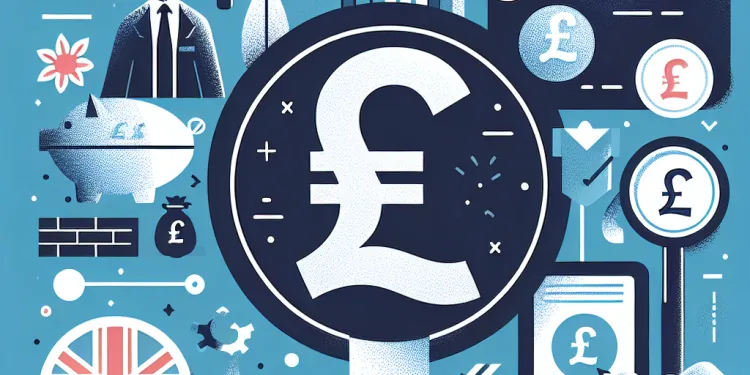
How might a wealth tax affect wealthy individuals?
Relevance: 86%
-

What are common arguments in favor of a wealth tax?
Relevance: 85%
-

Are there any countries currently implementing a wealth tax?
Relevance: 84%
-

How is a wealth tax typically calculated?
Relevance: 84%
-

How do economists view the impact of wealth taxes?
Relevance: 83%
-

What is a Wealth Tax?
Relevance: 81%
-
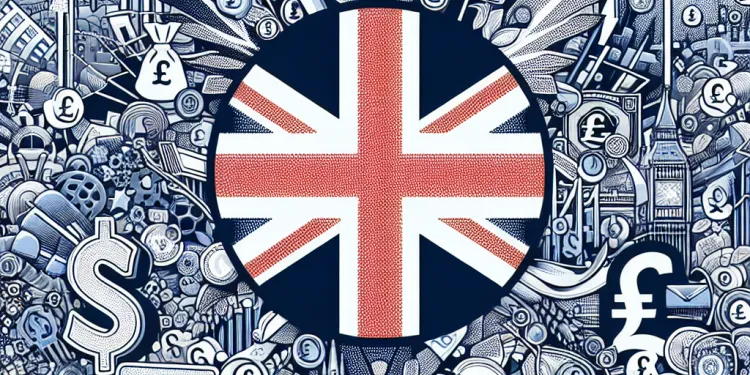
How do other countries implement a wealth tax?
Relevance: 79%
-

How might a wealth tax impact inequality in the UK?
Relevance: 79%
-
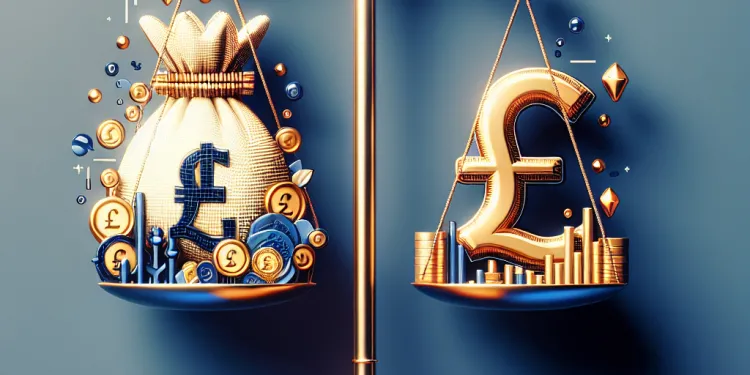
Has the UK ever had a wealth tax?
Relevance: 78%
-

Could a wealth tax affect economic growth in the UK?
Relevance: 78%
-
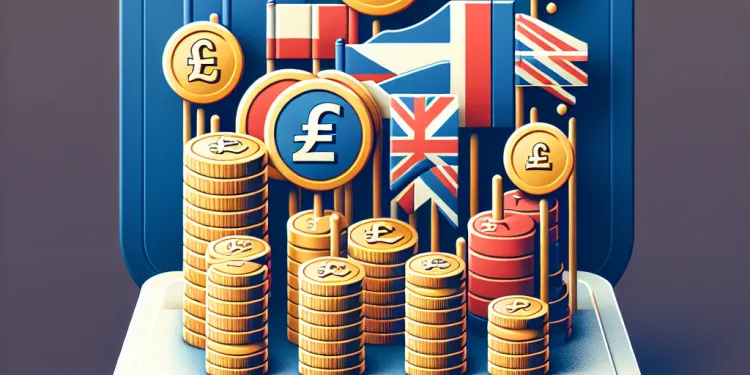
Has any political party in the UK supported a wealth tax?
Relevance: 78%
-

Is the tax refund amount taxable?
Relevance: 77%
-

Why doesn't the UK have a wealth tax?
Relevance: 77%
-

Would a wealth tax apply to foreign assets?
Relevance: 71%
-

What arguments are made for a wealth tax in the UK?
Relevance: 69%
-

Is real estate included in wealth tax calculations?
Relevance: 68%
-

Can my tax refund be applied to my future tax obligations?
Relevance: 68%
-

How do governments ensure compliance with wealth tax laws?
Relevance: 67%
-

Who is typically subject to a wealth tax?
Relevance: 65%
-
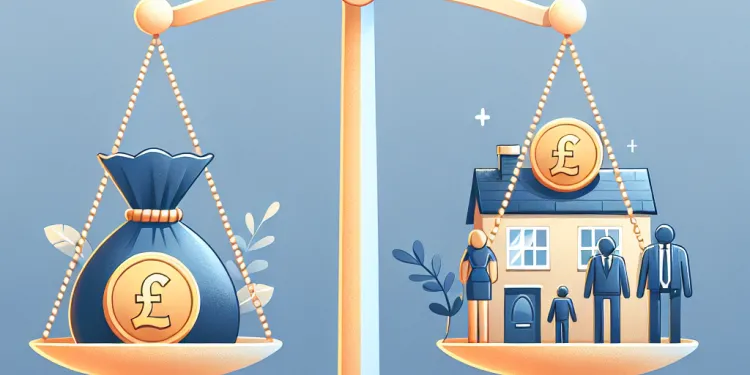
Do unpaid tax debts affect Inheritance Tax calculations?
Relevance: 65%
-

What are the administrative costs of a wealth tax?
Relevance: 65%
-
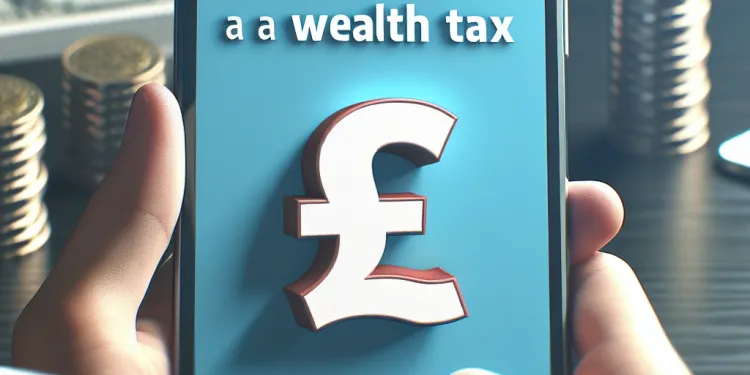
What are the challenges of implementing a wealth tax?
Relevance: 65%
-

How is the tax refund amount calculated?
Relevance: 63%
-
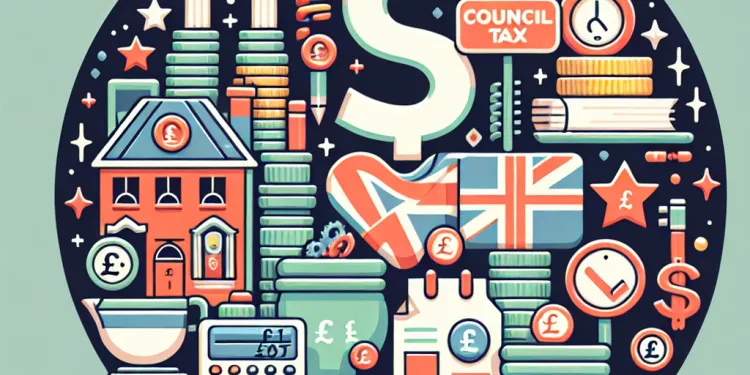
How does council tax relate to wealth in the UK?
Relevance: 60%
-
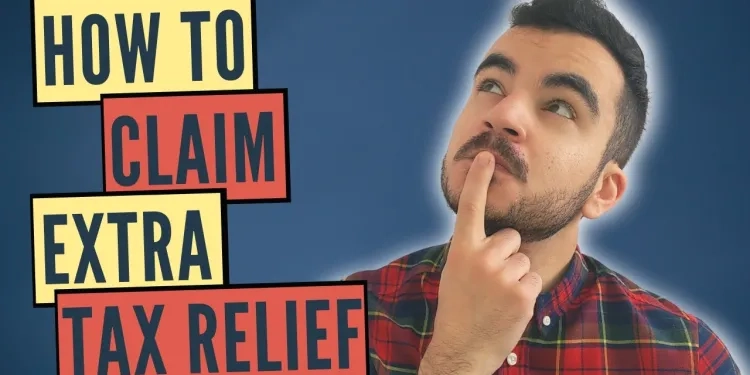
Higher Income Tax - How to Claim Pension Tax Relief | Extra 20% Boost
Relevance: 58%
-

How might these changes affect taxpayers on PAYE?
Relevance: 56%
-

How will dividend taxation change in April 2026?
Relevance: 56%
-
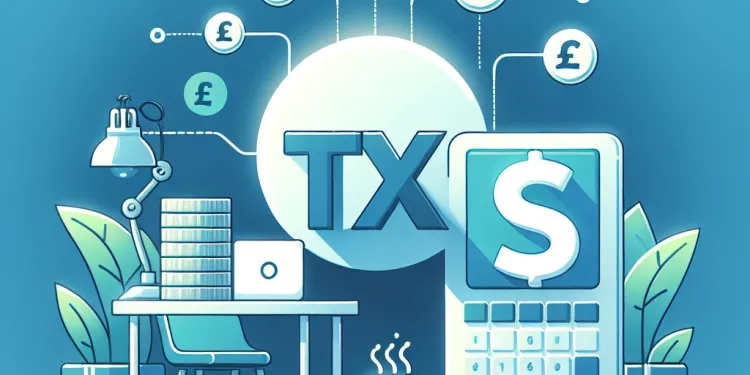
HMRC Tax Refund letters
Relevance: 55%
-

Do wealth taxes differ between countries?
Relevance: 55%
-

What Happens to Tax Debt After Death? (UK Laws)
Relevance: 55%
-
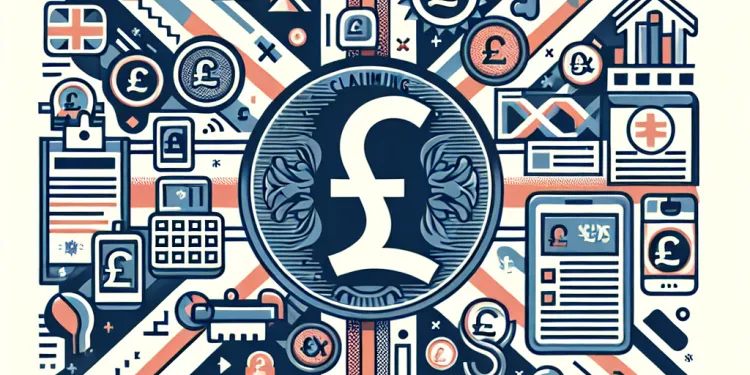
How do I claim my tax refund from HMRC?
Relevance: 54%
-
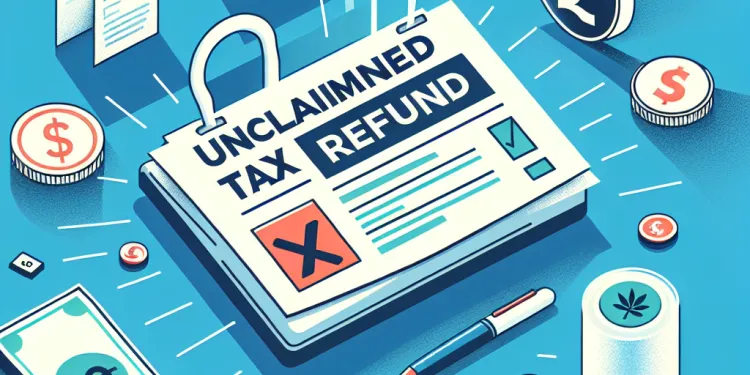
What happens if I do not claim my tax refund?
Relevance: 54%
Overview of Wealth Tax
A wealth tax is a tax on an individual's net worth or the market value of their total owned assets. In the UK, discussions around wealth taxes have garnered attention, especially as a means to address economic inequality. Unlike income tax, which is levied on individuals' earnings, a wealth tax targets the accumulated value of owned wealth, potentially including property, investments, and savings. However, it's crucial to understand who would typically be subject to such a tax.
Criteria for Wealth Tax Liability
When considering the implementation of a wealth tax, governments look at various criteria to determine who would be subject to it. Generally, a wealth tax is aimed at high-net-worth individuals. This group often includes those with substantial assets above a certain threshold, which would be defined by legislation. In the UK, the specifics of any wealth tax would depend on the proposed structure, which might include considerations of both the level of assets owned and the types of assets included.
High-Net-Worth Individuals (HNWIs)
High-net-worth individuals are typically the primary targets for a wealth tax. These individuals or families have significant liquid assets, usually over a million pounds, excluding liabilities. The rationale is that those with substantial wealth can contribute more without affecting their standard of living. HNWIs usually own a mix of properties, stocks, bonds, and other financial investments. A wealth tax would apply a percentage charge on the value of their accumulated assets.
Ultra-High-Net-Worth Individuals (UHNWIs)
Ultra-high-net-worth individuals (UHNWIs) represent an even more exclusive segment. These are people or families with net assets exceeding tens of millions of pounds. In discussions of wealth taxation in the UK, UHNWIs are often seen as prime candidates due to the vast amount of wealth they control compared to the rest of the population. Targeting this group could potentially generate significant revenue without broadly impacting the middle class.
Potential Exemptions
A wealth tax might also incorporate certain exemptions or thresholds below which individuals would not be taxed. This could be based on factors such as the primary residence, pensions, or other considerations to avoid undue burden on individuals who are asset-rich but cash-poor. Policymakers might design such exemptions to protect small business owners or those with rapidly appreciating property values in specific regions.
Conclusion
The implementation of a wealth tax in the UK would typically target individuals with considerable net worth, specifically high and ultra-high-net-worth individuals. The decision involves deliberations on the balance between generating government revenue and preserving economic fairness. As discussions continue, the potential design and scope of such a tax would aim to address wealth disparities while considering the economic implications for those affected.
What is a Wealth Tax?
A wealth tax is money you pay on the total value of what you own. This means things like houses, money in the bank, and other valuable things. In the UK, people are talking about using a wealth tax to make the economy fairer. This is different from income tax, which is money you pay on what you earn. A wealth tax looks at all the things you own.
Who Pays a Wealth Tax?
Governments decide who has to pay a wealth tax by setting rules. Usually, it's for people with lots of money and valuable things. In the UK, these rules would say how much you have to own before you need to pay. It looks at both how much and what kind of things you own.
Rich People (HNWIs)
Rich people are often the ones who have to pay a wealth tax. These are people who have a lot of money and things, usually more than a million pounds. These people can pay more tax without it affecting their lifestyle. They might own houses, stocks, and other investments. The tax takes a small part of the value of what they own.
Very Rich People (UHNWIs)
Very rich people have even more money, often tens of millions of pounds. In the UK, these very rich people might be asked to pay more tax because they have so much compared to others. This can help raise money for the government without affecting most regular people.
Who Might Not Have to Pay?
Some people might not have to pay a wealth tax. This could depend on things like your main home or your pension. The government might make rules to protect people who have valuable things but not much money, like small business owners or people with houses that suddenly became more valuable.
Summary
If the UK uses a wealth tax, it will mostly be for people with a lot of money and valuable things. The aim is to make things fairer and raise money for the government. It's important to think about how this affects everyone, and the rules will try to keep it fair for everyone.
Frequently Asked Questions
What is a wealth tax?
A wealth tax is a tax based on the market value of assets owned. It typically applies to individuals with significant net worth.
Who is typically subject to a wealth tax?
Individuals or households with a high net worth, often above a specified threshold set by the government, are typically subject to a wealth tax.
What kind of assets are considered in a wealth tax?
Assets considered can include real estate, stocks, bonds, bank deposits, and other types of investments.
Are there exemptions in wealth taxes?
Yes, some forms of assets may be exempt, such as primary residences up to a certain value or investments in certain sectors.
Is wealth tax applicable worldwide?
No, wealth tax is not universally applied; only certain countries impose it, and the parameters vary widely.
How is the threshold for wealth tax determined?
Thresholds are set by governments and can depend on economic factors and policy decisions.
Does the wealth tax rate vary?
Yes, the rate can vary depending on the total value of assets owned and the laws of the country imposing the tax.
How often is wealth tax assessed?
Wealth tax is typically assessed annually based on the value of assets at a specific date.
Why do some countries impose a wealth tax?
Countries may impose a wealth tax to reduce economic inequality and generate revenue from high-net-worth individuals.
Can wealth tax be reduced by liabilities?
Often, liabilities such as mortgages are subtracted from asset values to determine net wealth.
Do wealth taxes apply to business holdings?
Yes, business holdings can be included in the wealth tax calculations, depending on the country's specific laws.
Do all wealthy individuals pay wealth tax?
Not necessarily. It depends on the laws of the individual's country of residence and whether their wealth exceeds the legal threshold.
How do countries enforce wealth taxes?
Through tax declarations, audits, asset disclosures, and by utilizing financial records and reports.
What challenges are associated with wealth taxes?
Challenges include accurately assessing asset values, enforcing compliance, and preventing capital flight.
Do wealth taxes differ from estate taxes?
Yes, estate taxes apply to assets after death, whereas wealth taxes are on current possession during one's lifetime.
Are there any countries known for high wealth taxes?
Some European countries, like France and Spain, have or had wealth taxes historically.
Have wealth taxes been abolished in some countries?
Yes, several countries, including Austria and Denmark, have abolished wealth taxes due to challenges in enforcement and economic impacts.
Do wealth taxes affect economic behavior?
Potentially, as they may influence investment decisions, savings, and the movement of capital.
What is the moral argument for wealth taxes?
Supporters argue wealth taxes promote fairness and reduce inequality by taxing those with greater means.
What is the economic argument against wealth taxes?
Critics argue they discourage investment, harm economic growth, and can lead to tax evasion.
What is a wealth tax?
A wealth tax is money that rich people pay to the government. They pay this tax because they own things like houses, cars, or money in the bank. The government uses this money to help everyone.
Tips to understand:
- Break big words into small parts.
- Ask someone to read with you.
- Use a dictionary to look up hard words.
A wealth tax is a tax on what you own. It looks at how much your stuff is worth. It usually affects people who have a lot of money and valuable things.
Who has to pay a wealth tax?
People or families who have a lot of money and things worth a lot might have to pay a special tax. This is called a wealth tax.
What things are counted in a wealth tax?
A wealth tax is a kind of money charge. It is taken from what people own.
Here are some examples of things that might be counted:
- The home you live in
- Any extra houses you have
- Cars, boats, or other vehicles
- Jewelry, art, and other valuable items
- Money in the bank
- Stocks or shares
To make this easier to understand, you can:
- Ask someone to explain it to you
- Use pictures to match with words
- Break down each item one by one
Things you own can be things like houses, land, shares in a company, loans that pay you money, money in the bank, and other ways to invest your money.
Do some people not have to pay wealth taxes?
Some people might not have to pay wealth taxes. This depends on different rules. These rules can change where you live.
Here are some tips to help you learn more:
- Ask a helper, like a teacher or family member.
- Use pictures or videos to understand better.
- Find a simple book about taxes.
Yes, some things you own might not count. For example, the home you live in might be okay if it's not too expensive. Some types of savings or investments might also be okay.
Do countries all over the world have a wealth tax?
No, not all countries have a wealth tax. Only some countries do. The rules are different in each place.
How do we decide on the amount for the wealth tax?
Governments decide on limits called thresholds. These limits can change because of money matters and what the government decides.
Does the wealth tax rate change?
Yes, the rate can change. It depends on the total value of things a person owns and the laws of the country that asks for the tax.
How often do we check wealth tax?
We check wealth tax every year.
Tools to help:
- Use a calendar to mark the date.
- Ask someone you trust to remind you.
A wealth tax is like a money rule. Every year, there is a special day when people's things are checked to see how much they are worth. This checking helps to find out how much tax they should pay.
Why do some countries have a wealth tax?
Some countries make people with a lot of money pay a special tax. This is called a wealth tax.
Here are some reasons why they might do this:
- To help everyone have more fairness. It means sharing money better.
- To get money for important things like schools, roads, and hospitals.
- To make sure the gap between rich and poor isn't too big.
Tip: If reading is hard, try using audiobooks or asking someone to read with you.
Some countries ask rich people to pay extra money called a wealth tax. This helps make things more fair and gives the country money to use for important things.
Can you pay less wealth tax because you have debts?
Sometimes, to find out how much money you really have, you need to take away what you owe, like home loans, from what you own, like your house or savings.
Here are some tips to help understand more:
- Break it down: Think about what you have and what you owe separately.
- Make lists: Write down everything you own (your assets) and everything you owe (your liabilities).
- Use tools: Try using a calculator or online tool to help add and subtract.
Do I have to pay wealth taxes on my business stuff?
If you own a business, you might wonder if you need to pay wealth taxes on it. Wealth taxes are like a bill for having lots of money or valuable things.
Here’s what you can do to understand better:
- Ask a money expert or accountant to help you.
- Look for simple guides or videos online that explain wealth taxes.
Yes, business holdings can be part of wealth tax. This depends on what the country's rules are.
Do all rich people pay wealth tax?
Some rich people pay a special tax because they have a lot of money, called wealth tax. But not all rich people have to pay this tax. It depends on where they live and the rules there.
Some richer people might pay different kinds of tax too. If you want to know if someone pays wealth tax, you can ask a helper or look up the rules online.
Tools that can help include using a computer with a reading program that reads out loud or asking someone to help explain.
Not always. It depends on the rules in the person's country where they live. It also depends on how much money they have.
How do countries make sure people pay taxes on their money and things?
We can find out about taxes by:
- Filling out tax forms
- Checking money records
- Listing what people own
- Using money reports
What problems come with wealth taxes?
Wealth taxes are taxes on the money and things that a person owns, like houses or money in the bank.
Here are some problems people might have with wealth taxes:
- They can be hard to calculate because people own many different things.
- Some people might hide their money to avoid paying the tax.
- It can be unfair if the tax is too high for people who don’t have much money left after paying.
- People might move to a different country to pay less tax.
If reading is hard, you can try using text-to-speech tools or read with a friend who can help explain big words.
There are some problems. It can be hard to know what things are worth. It's also tricky to make sure people follow the rules and stop money from leaving the country.
Are wealth taxes different from estate taxes?
Yes, estate taxes are paid on things you own after you die. Wealth taxes are paid on things you own now, while you are alive.
Do some countries have high taxes on the money people own?
Some countries in Europe, like France and Spain, have had a tax called a wealth tax before.
Did some countries stop asking people to pay wealth taxes?
Yes, some countries like Austria and Denmark do not have wealth taxes anymore. They stopped them because it was hard to manage and it affected the economy.
If you find this hard to read, you can try reading it out loud or ask someone to help explain it to you. There are also apps that can read text to you.
Do wealth taxes change how people spend or handle money?
They might change how people choose to invest, save money, and move money around.
Why do some people think wealth taxes are fair?
A wealth tax is money that rich people pay to help everyone. Some people think this is fair because:
- It helps share money with people who have less.
- It can pay for important things like schools and hospitals.
To understand better, you can:
- Ask someone you trust to explain more.
- Use pictures or videos to learn about wealth taxes.
Some people say that wealth taxes are good. They think these taxes help make things fair and reduce the gap between rich and poor by making rich people pay more.
Why do some people think wealth taxes are a bad idea?
Wealth taxes are when the government takes money from rich people every year.
Some people say wealth taxes are a bad idea because:
- Rich people might move to other countries to avoid paying.
- It could stop people from wanting to save money.
- It might make it hard for businesses to grow.
- It can be complicated and expensive to collect the tax.
Tools that can help: use a dictionary for tricky words or ask someone to explain.
Some people think these rules are bad because they stop people from putting money into businesses. This can slow down how fast the economy grows. Also, some people try to cheat and not pay their taxes because of these rules.
Useful Links
- Ergsy carfully checks the information in the videos we provide here.
- Videos shown by Youtube after a video has completed, have NOT been reviewed by ERGSY.
- To view, click the arrow in centre of video.
- Most of the videos you find here will have subtitles and/or closed captions available.
- You may need to turn these on, and choose your preferred language.
- Go to the video you'd like to watch.
- If closed captions (CC) are available, settings will be visible on the bottom right of the video player.
- To turn on Captions, click settings .
- To turn off Captions, click settings again.
More Items From Ergsy search
-

How does a wealth tax differ from an income tax?
Relevance: 100%
-

Would a wealth tax replace other taxes in the UK?
Relevance: 99%
-

Can a wealth tax be levied annually?
Relevance: 91%
-

What is the wealth tax in the UK?
Relevance: 91%
-

Could a wealth tax encourage tax avoidance?
Relevance: 91%
-

What is the Wealth Tax in the UK?
Relevance: 86%
-

Can a wealth tax impact economic behavior?
Relevance: 86%
-

What is the objective of a wealth tax?
Relevance: 86%
-

How might a wealth tax affect wealthy individuals?
Relevance: 86%
-

What are common arguments in favor of a wealth tax?
Relevance: 85%
-

Are there any countries currently implementing a wealth tax?
Relevance: 84%
-

How is a wealth tax typically calculated?
Relevance: 84%
-

How do economists view the impact of wealth taxes?
Relevance: 83%
-

What is a Wealth Tax?
Relevance: 81%
-

How do other countries implement a wealth tax?
Relevance: 79%
-

How might a wealth tax impact inequality in the UK?
Relevance: 79%
-

Has the UK ever had a wealth tax?
Relevance: 78%
-

Could a wealth tax affect economic growth in the UK?
Relevance: 78%
-

Has any political party in the UK supported a wealth tax?
Relevance: 78%
-

Is the tax refund amount taxable?
Relevance: 77%
-

Why doesn't the UK have a wealth tax?
Relevance: 77%
-

Would a wealth tax apply to foreign assets?
Relevance: 71%
-

What arguments are made for a wealth tax in the UK?
Relevance: 69%
-

Is real estate included in wealth tax calculations?
Relevance: 68%
-

Can my tax refund be applied to my future tax obligations?
Relevance: 68%
-

How do governments ensure compliance with wealth tax laws?
Relevance: 67%
-

Who is typically subject to a wealth tax?
Relevance: 65%
-

Do unpaid tax debts affect Inheritance Tax calculations?
Relevance: 65%
-

What are the administrative costs of a wealth tax?
Relevance: 65%
-

What are the challenges of implementing a wealth tax?
Relevance: 65%
-

How is the tax refund amount calculated?
Relevance: 63%
-

How does council tax relate to wealth in the UK?
Relevance: 60%
-

Higher Income Tax - How to Claim Pension Tax Relief | Extra 20% Boost
Relevance: 58%
-

How might these changes affect taxpayers on PAYE?
Relevance: 56%
-

How will dividend taxation change in April 2026?
Relevance: 56%
-

HMRC Tax Refund letters
Relevance: 55%
-

Do wealth taxes differ between countries?
Relevance: 55%
-

What Happens to Tax Debt After Death? (UK Laws)
Relevance: 55%
-

How do I claim my tax refund from HMRC?
Relevance: 54%
-

What happens if I do not claim my tax refund?
Relevance: 54%